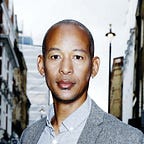A hundred-and-five years of Virgilio Piñera, l’enfant terrible of Cuban literature
The sound of seats slamming up, shuffling feet exiting the theatre mid-performance and cries of disgust and disapproval are not the reactions a playwright would normally expect at a premiere. Yet this was the public’s response to Electra Garrigó, a play by the then 36-year-old Virgilio Piñera first staged in 1948. The sacrilegious writer had spat in the face of mainstream Cuban theatre, which still displayed colonial stereotypes that stifled talent and invited intellectual laziness. Cuban modernism had been born.
Virgilio Domingo Piñera Llera was born in Cárdenas, western Cuba, on 4 August 1912. Nothing in his normal upbringing (his father worked as a public servant and his mother was a teacher) could predict that he would one day become one of Cuban literature’s trailblazers. But from an early age, Piñera was an avid reader; among the books he considered essential reading were À la Recherche du Temps Perdu by Marcel Proust, and Moby Dick by Herman Melville. This capacity to draw inspiration from different genres was fundamental in the development of his career and unlike the sesquipedalian Lezama Lima, author of the masterpiece Paradiso, Piñera combined Cuban vernacular with more refined language.
Piñera was known for his caustic wit and acerbic tongue. This earned him a…
